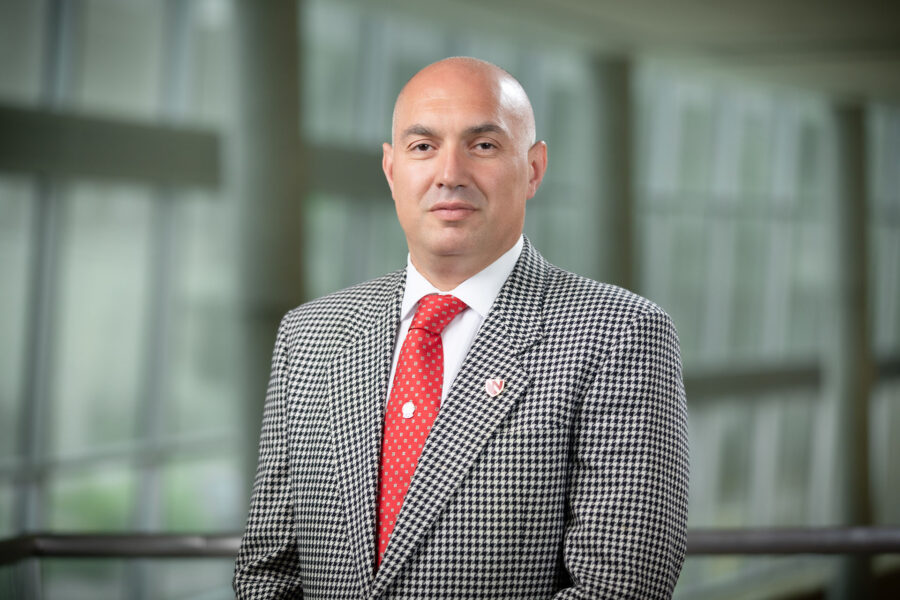Wael ElRayes, MD, PhD, co-director for the UNMC Center for Global Health and Development, was among a distinguished group of global experts who contributed their technical expertise to a groundbreaking health security document developed by the Africa Centres for Disease Control and Prevention.
Dr. ElRayes, an associate professor with the department of health services research and administration in the UNMC College of Public Health, said the Africa CDC, operating under the African Union, has been actively working to advance health security across the continent’s 54 countries.
“Despite Africa’s vast geographic, economic, and cultural diversity, Africa CDC has made significant strides in establishing unified health strategies,” he said.
For the past eight years, Dr. ElRayes said he has worked towards building strong professional relationships with Africa CDC leadership, including Ali Asy, PhD, chair of the North Africa Biosafety and Biosecurity Technical Working Group, and Raji Tajudeen, MD, acting deputy director general and head of the Division of Public Health Institutes and Research at Africa CDC. Both serve as adjunct professors with the UNMC Department of Health Services Research and Administration.
A key outcome of this partnership is the recently completed document outlining standardized guidelines for identifying and managing high-consequence agents and toxins.
“This initiative marks the first time a framework of this scale has been created, providing African nations with a structured methodology to assess, identify and handle high-consequence agents and toxins under the continent’s health security strategy,” he said.
Dr. ElRayes said that while high-profile pathogens like Ebola, HIV, malaria and CCHF have long been at the forefront of public health discussions, toxins often receive less attention despite their potential risks.
“These guidelines ensure that African nations have a reliable reference to guide their management of both pathogens and toxins, strengthening the continent’s overall biopreparedness.”
The importance of this initiative extends beyond Africa, he said. The emergence and re-emergence of infectious diseases are global concerns, and improving biosecurity measures in regions prone to outbreaks enhances worldwide health security.
“As Africa hosts several high-risk diseases, strengthening frameworks and capacity-building efforts within the continent is crucial in preventing the spread of future pandemics,” Dr. ElRayes said.
“This work enhances the ability of African nations to systematically address biosafety and biosecurity concerns, ultimately benefiting global health by containing potential threats at their source.”
Dr. ElRayes said beyond the immediate health security benefits, this collaboration significantly enhances UNMC’s reputation on the international stage. “This is a huge step for UNMC. While we have established relationships and presence within certain African countries, not every country is familiar with UNMC’s expertise in global health security. This document showcases our contributions and strengthens our presence across the continent.”
Dr. ElRayes is aiming to continue his engagement with Africa CDC and other international health organizations.
“It’s all about connections, trust and collaboration,” he said. “Whether working with large organizations or smaller institutions, our goal is to assist in whatever way we can to enhance global health security.”
